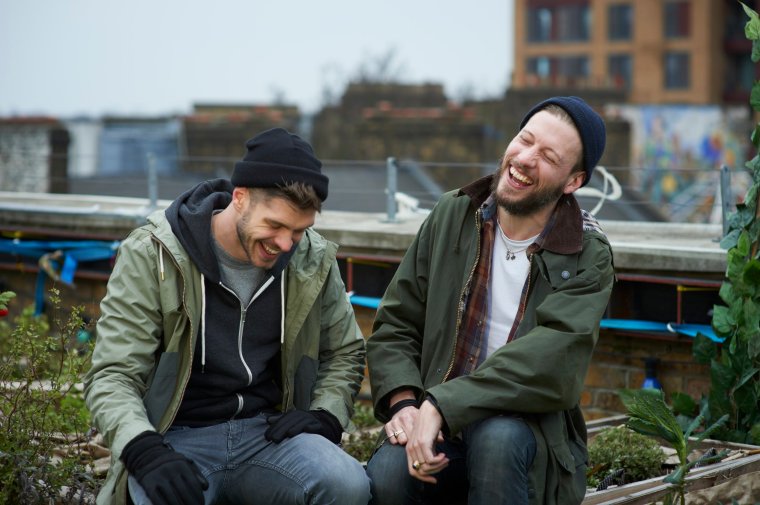I’ve been thinking a lot about solitude recently. And not just because of the interminable Easter holidays, which seem to last this year from around mid-March through to the day of the Coronation in May, unhappily augmented by those teachers’ strikes that show no sign of disappearing.
It was my decision, sort of, to have three children, and I accept that means an endlessly busy house: my eldest a teenager who seldom leaves either her phone or the sofa; my middle one, who spends all day hitting a ball with a cricket bat, about four inches away from where I’m sitting (which is almost exactly as annoying as it sounds); the youngest a four-year-old who fondly believes that my idea of fun is playing the shopkeeper game.
The latter, Phoebe, came into the bathroom the other day, and genuinely asked why I always took so long to have a wee. That 90 seconds of mindless peace staring at the grouting clearly one self-indulgent treat too far.
Against this backdrop, it is perhaps unsurprising that, when I was writing my first detective novel Death Under a Little Sky, I introduced the conceit of a burned-out copper who inherits an empty farmhouse, where there is no internet or phone signal, no shouts or shrieks or blurts.

I wrote much of it during the first Covid lockdown, where proximity of people was not just annoying (my favourite Covid proverb: “a house that you cannot leave is never clean”), but mildly dangerous, and the luxury of loneliness seemed rather appealing.
Loneliness, and the question of a man and his friends has always interested me. I have said it before, and people think I’m joking, but I seem to have reached my 43rd year without a friendship circle at all. Nothing. Stiggy no-mates. And when I talk about it, some are sympathetic, some suspicious, but all are a bit surprised. I don’t entirely know why.
I always assumed friendship was something you grew out of. Like lie-ins, or laughing gas. I seem to have blundered into a part of life where the very concept of friendship seems not to matter very much to me at all. Here are some theories as to why.
Friendship is a gendered thing
Generalisation is dangerous (as you always must say before making an especially dangerous generalisation), but women seem to need their friends more. Women communicate more often, more intimately and more healthily (indeed one of the reasons behind the abhorrent levels of male suicide seems to be a reluctance for guys to gather together and talk).
And, because they have hitherto so often handled childcare, they have always had ready access to new friendship circles with each child’s entrance to school. My Dad – a far nicer person than me – never had friends. He just worked hard and came home, like I do. My mum still speaks to her best friend every night for an hour. I haven’t answered a non-work phone call since 2011.
Colleagues are good substitute friends
I’ve always been lucky to work with interesting and fun people. I get plenty of conversation every day, lots of chances to talk about pressing issues. OK, my day job is speaking on the radio every morning, but almost any workplace is a social entity. If you hang out with people you like during office hours, why bother looking for more of the same in the evening and weekends?
My wife is the only friend I need
Quick digression: one of my least favourite traits in people is talking dismissively about their partners. You know the type: subtly denigrating their husband or wife in conversation, implying that they are relieved to be away from them, being held back by their very existence. I am the opposite.
I tell everyone that I am the luckiest person alive to have met someone – Nadine – who makes me happy, keeps me sane, and – 18 years after we first met – is still hot enough to tingle my very toes every time I see her. If you have a friend with benefits, you’re not so bothered to have one without.
Books are better than people
Stay with me on this one. I’m not sure you’ve ever thought about this, but books are better company than most folk. They are endless and generous, wide-ranging and surprising, and take you away from the humdrum of reality. They contain multitudes. You can fit them in your pocket, shut them when they get tiresome, and get a brand-new experience any time you want. An evening out in a noisy pub is almost always a pain (be honest), an evening in with a book almost never is.
Am I convincing anybody here, I wonder? Am I missing something crucial about life? Maybe. But I’m also largely content. Be assured I’m social, I’m up for a chat, but just for a few minutes, before we can go our separate ways again. That’s just about enough socialising for me.
Death Under A Little Sky is published 13 April (HarperFiction). Stig Abell will be in conversation with Sophie Hannah on 19 April at Waterstones Trafalgar Square


